Conference in Iceland: Mental well-being as a key to integration?
Integration, Immigration & development, Social work
14 Dec 2023
Paola Cardenas from Reyjavik University (picture) was among 120 Nordic professionals that exchanged knowledge and experiences at a conference in Reykjavik on the importance of mental well-being in the integration process.
By Lasse Skytt, journalist in Iceland
REYKJAVIK – The 120 professionals seated at large round tables came from near and far to discuss and learn about the significance of well-being in the process of integration in the Nordics.
All five Nordic countries and the Baltics were represented on the participant list for the conference, that was hosted by the Nordic Council of Ministers and the Ministry of Social Affairs and Labour in Iceland. Some were social workers from NGOs and municipalities, others were researchers and advisors from universities and ministries.
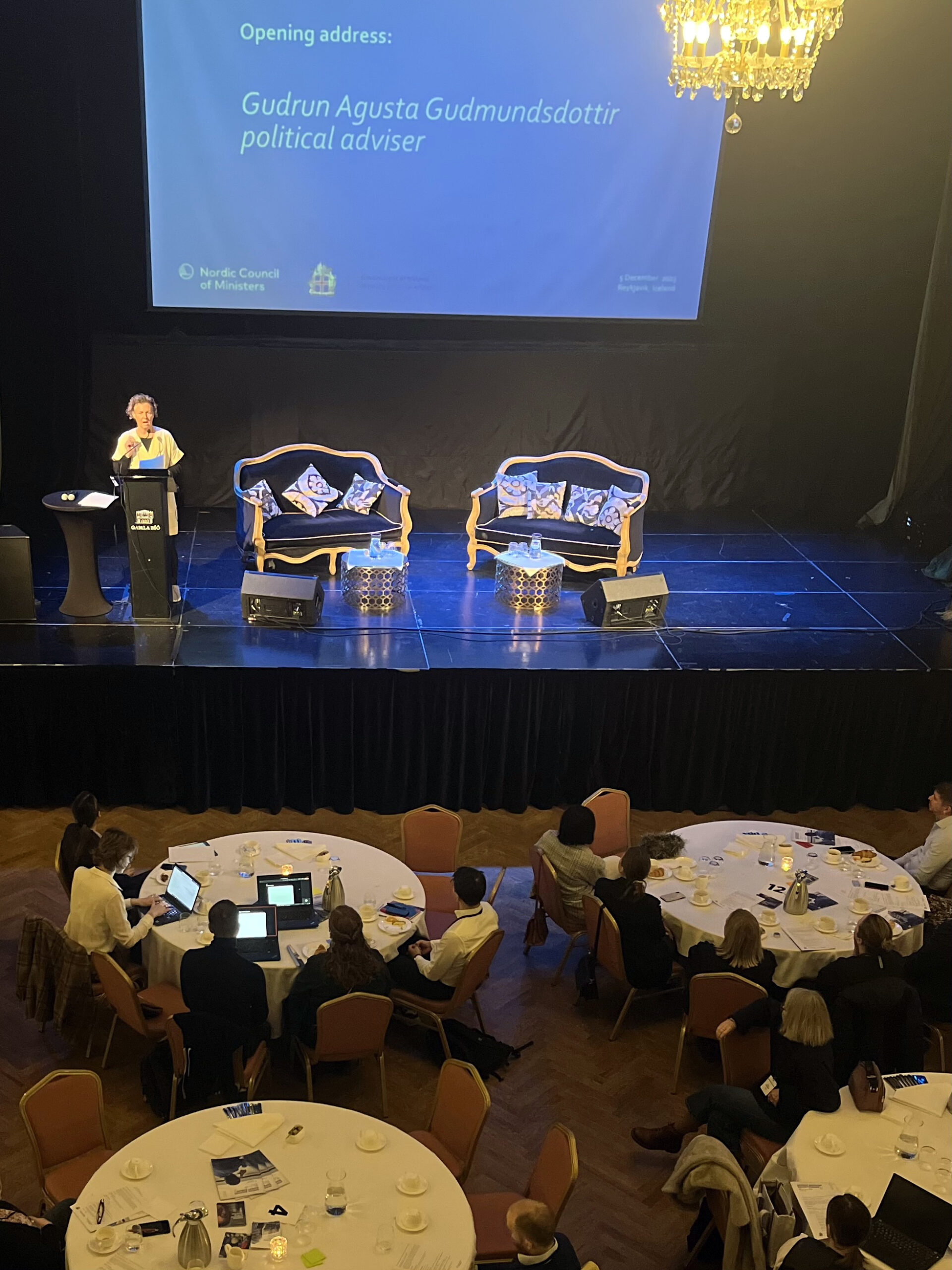
After a last-minute cancellation from the minister of Social Affairs and Labour, political advisor Guðrún Ágústa Guðmundsdóttir stepped in and outlined the Icelandic presidency’s focus on well-being and mental health.
“Integration goes both ways. It can never be the sole responsibility of immigrants to integrate,” said Guðmundsdóttir.
She elaborated that integration is not just about giving people a job or teaching them the language.
As a receiving country, it is our duty to provide them with a meaningful platform in their lives so they can have a voice and play a role in society, she pointed out.
“Failing on the path to integration is failing the future,” said the advisor.
“It takes a village to raise a child, but it takes an entire society to properly welcome immigrants.”
OECD’s migration specialist Thomas Liebig joined the conference via video link.
He highlighted Iceland’s significant increase in immigrants over the past decade – the largest among all OECD countries.
On the screen, Liebig also mentioned that 1 in 10 migrants feel discriminated against and warned of an increased risk of poverty among migrants.
The well-being flower and a growing gap
Melanie Powell, mental health and psychosocial support professional from Iceland, explained that well-being is a multifaceted concept, and mental health is only one element of well-being.
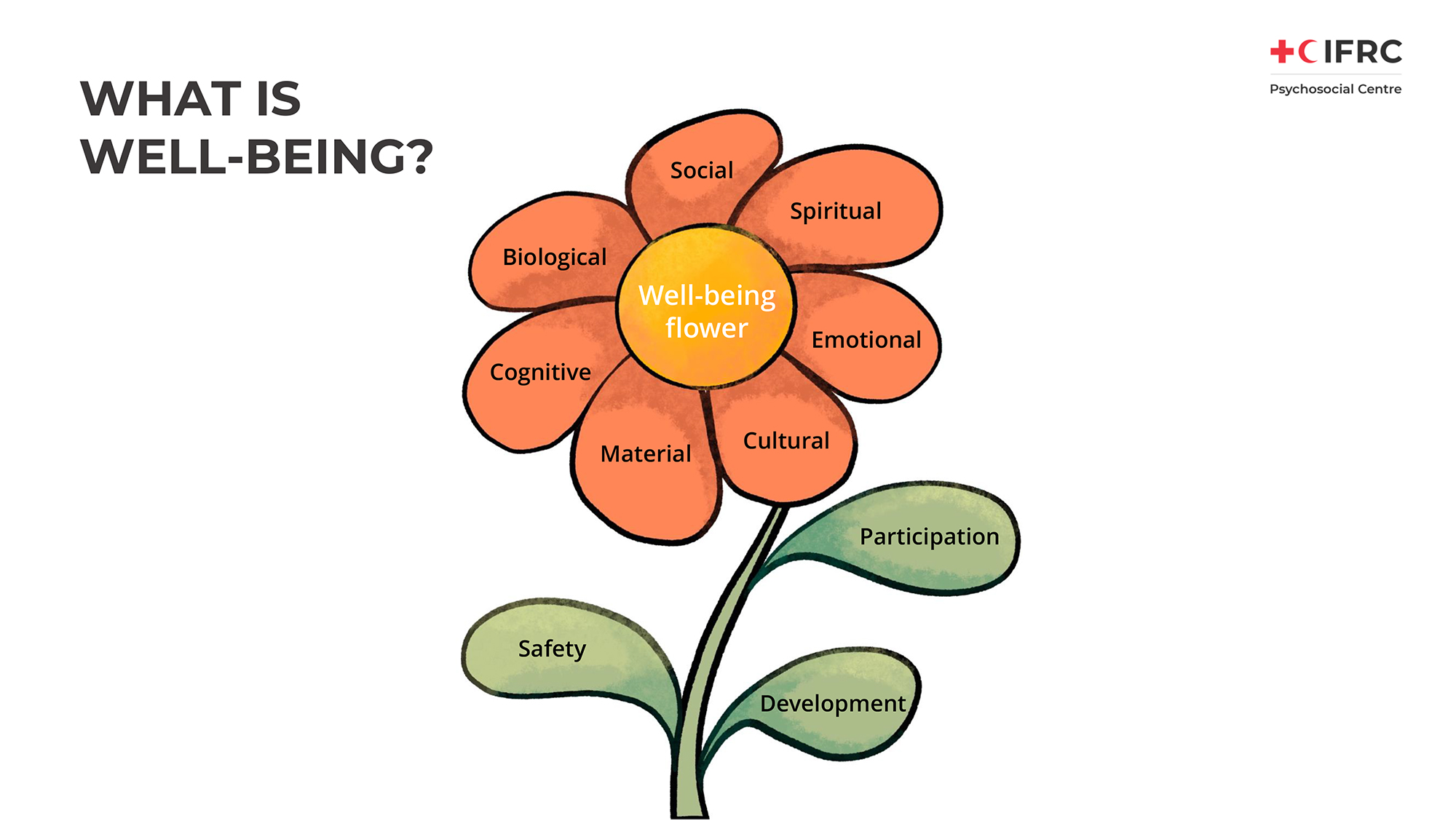
She introduced the so-called well-being flower, which points to social, spiritual, emotional, cultural, and material well-being as important factors for the overall experience of well-being among immigrants.
“Good mental health and well-being are crucial for a socially sustainable Nordic region,” emphasized Powell.
Afterwards, the conference participants gained insights into the practical experiences of two individuals who had experienced coming to a new country and feeling like a total stranger.
Romanian-born Mirabela Aurelia Blaga moved to Iceland in 2006 and experienced firsthand how encountering a more reserved culture than her own initially affected her mental health.
She decided to fully learn the Icelandic language and eventually became an integrated part of society.
Today, she is the first Romanian to study law in Iceland.
Onstage, Blaga was joined by Anna Gripenberg, a Finnish-born representative from the organization Newcomers with Disabilities in Sweden.
Gripenberg told she had experienced bureaucratic barriers when moving between Finland and Sweden and pointed out that we often take for granted that the Nordic countries are integrated across borders, though it is not always the case.
A sense of belonging
According to psychologist and professor Paola Cardenas from Reykjavik University, immigrants can be assimilated, separated, or marginalized, but the most optimal scenario is integration:
“Integration helps build a sense of belonging to two worlds at the same time,” Cardenas explained.
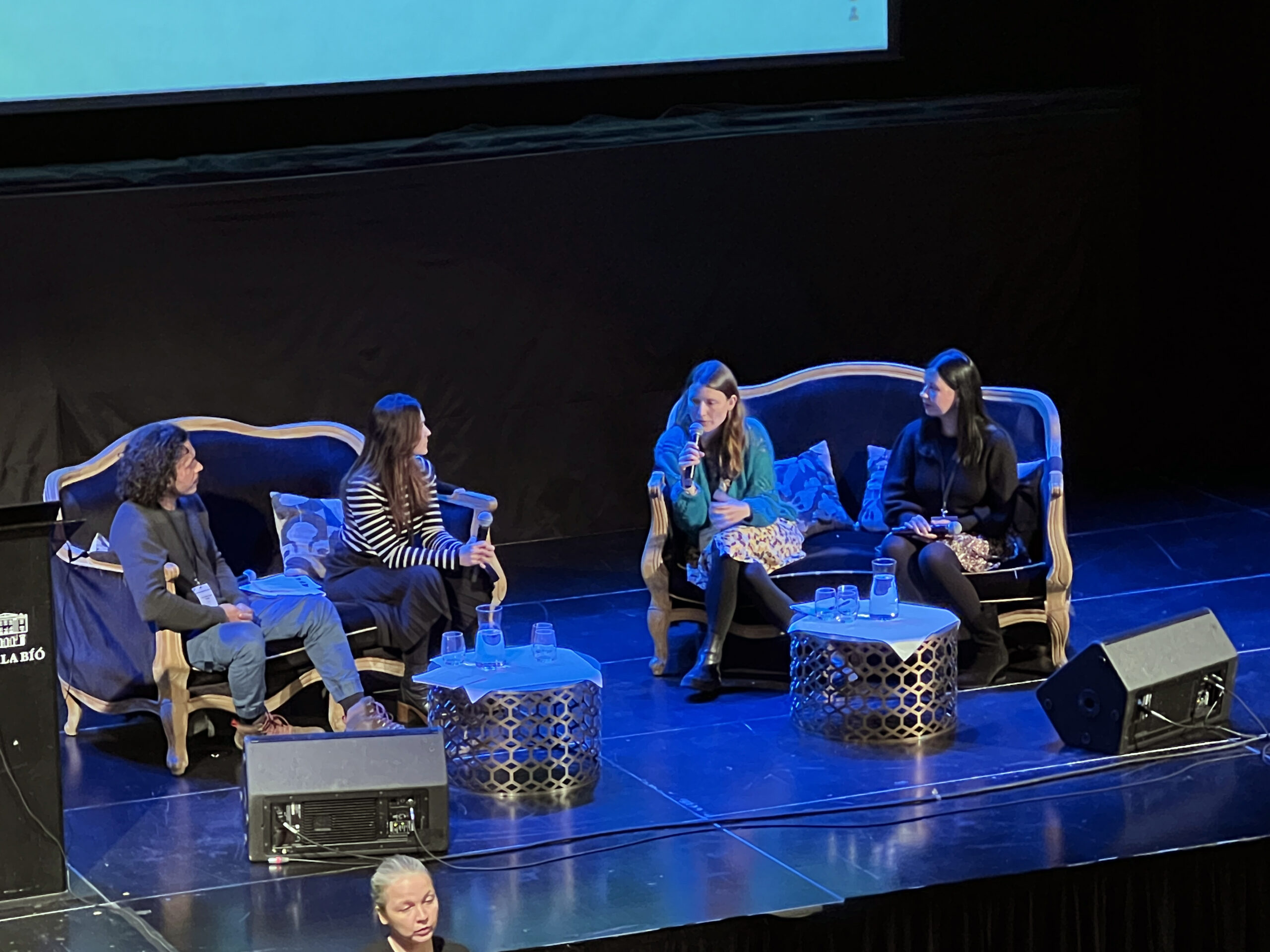
After the lunch break, a new expert panel gathered on the stage – this time with practical solutions in focus.
Next to Paola Cardenas, the audience had the pleasure of hearing from Maria Marti Castaner, assistant professor at the University of Copenhagen, and Muneeza Rosendahl, director of the Danish organization Lige Adgang.
Castaner pointed to politicians and other opinion-makers, stating that the tone of the debate affects the mental health of immigrants.
She quoted a refugee mother whom she had interviewed for a study on migration to Denmark:
“Honestly, the political atmosphere is really annoying. When they talk about refugees, I don’t feel like I have a future here”.
Muneeza Rosendahl, too, experienced that the public discourse has consequences for the well-being of immigrants.
“If we ask advertisers why they spend millions perfecting a slogan, it’s because the wording matters. When we speak poorly about the people coming here, it will affect their sense of belonging,” she said.
Via video link, Frank Ojwang from the University of Lapland shared practical experiences using Virtual Reality for language learning for young immigrants in Finland:
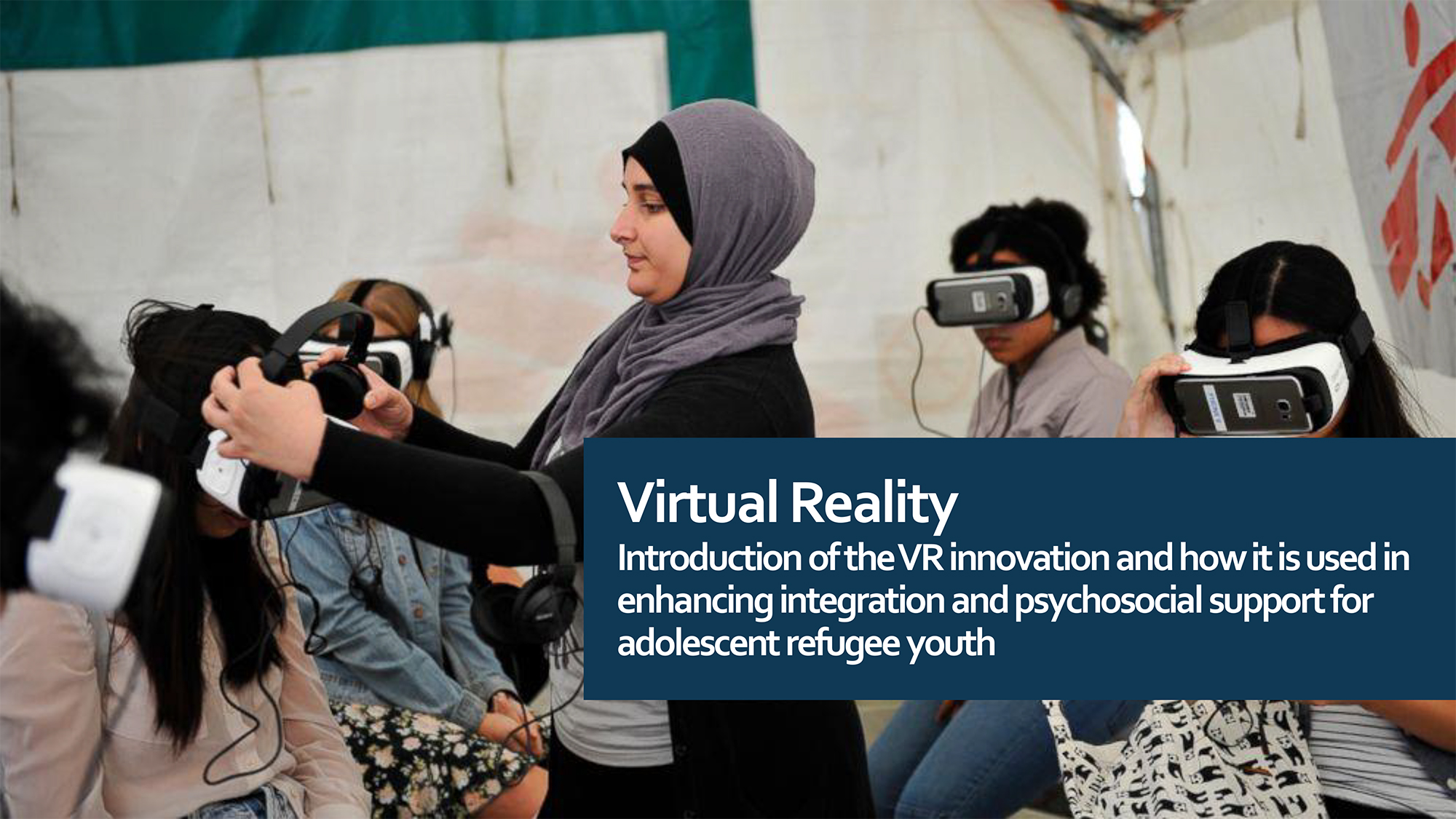
“Digital services can accelerate integration,” he underlined.
Following him, Sarah Kate van der Walt, technical advisor from the International Federation of Red Cross, took the stage to enlighten the audience on MHPSS integration, an abbreviation for “mental health and psychosocial support”.
She presented research from the Refuge-ed project, showing how to best recognize signs of distress in children and adults and how to support traumatized immigrants when they arrive in a foreign country.
She quoted the famous Hungarian-Canadian physician Gabor Maté: “Safety is not the absence of threat; it is the presence of connection”.
Towards the end of the conference, Natassia Fry took the stage and talked about the successful work of the organization Kompis Sweden, which she helped launch in 2013.
The organization has succeeded in connecting established Swedes with new Swedes in the thousands and making them feel a closer connection to Swedish society.
New friends and new knowledge
According to Natassia Fry, statistics show that new Swedes born abroad, on average, feel more lonely than older individuals in Sweden. But the results in Kompis Sweden, where new Swedes meet established Swedes, speak for themselves:
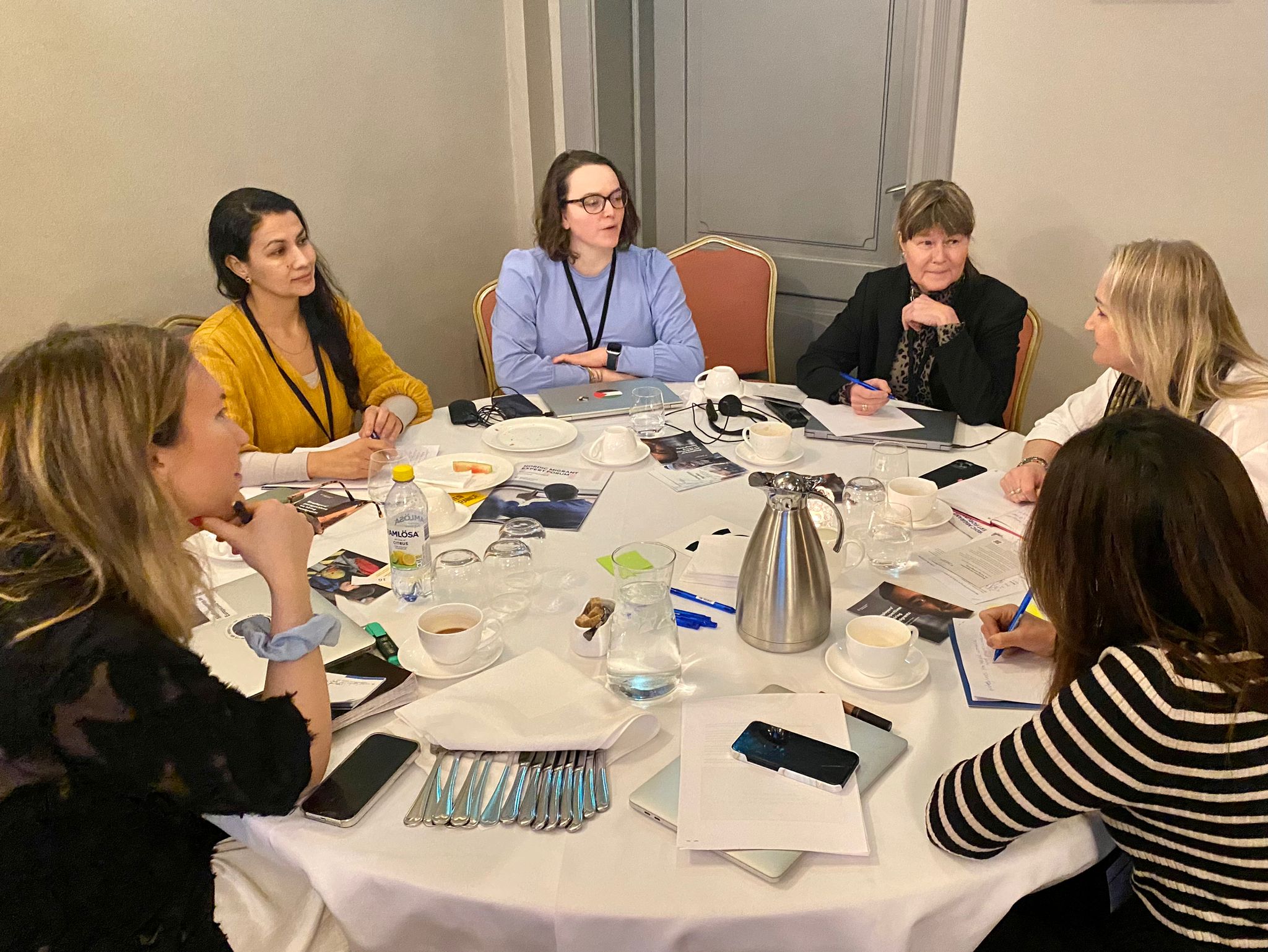
“7 out of 10 continue to meet each other after six months. They have become friends,” she noted.
Several times during the conference in Reykjavik, participants at the large round tables were encouraged to exchange experiences with each other, which lead to lively dialogues across the tables.
At one of the tables sat Josefina Rydén from Sweden, a project coordinator at Länsstyrelsen Värmland.
She said it had been incredibly rewarding to meet colleagues from Denmark and Iceland, who also work with integration on a daily basis.
“Great experiences and ideas have been exchanged today. I have come to understand that things can be done differently in other countries. As long as we continue to share our knowledge with each other, each of us won’t have to reinvent the wheel when it comes to integration,” concluded Josefina Rydén.
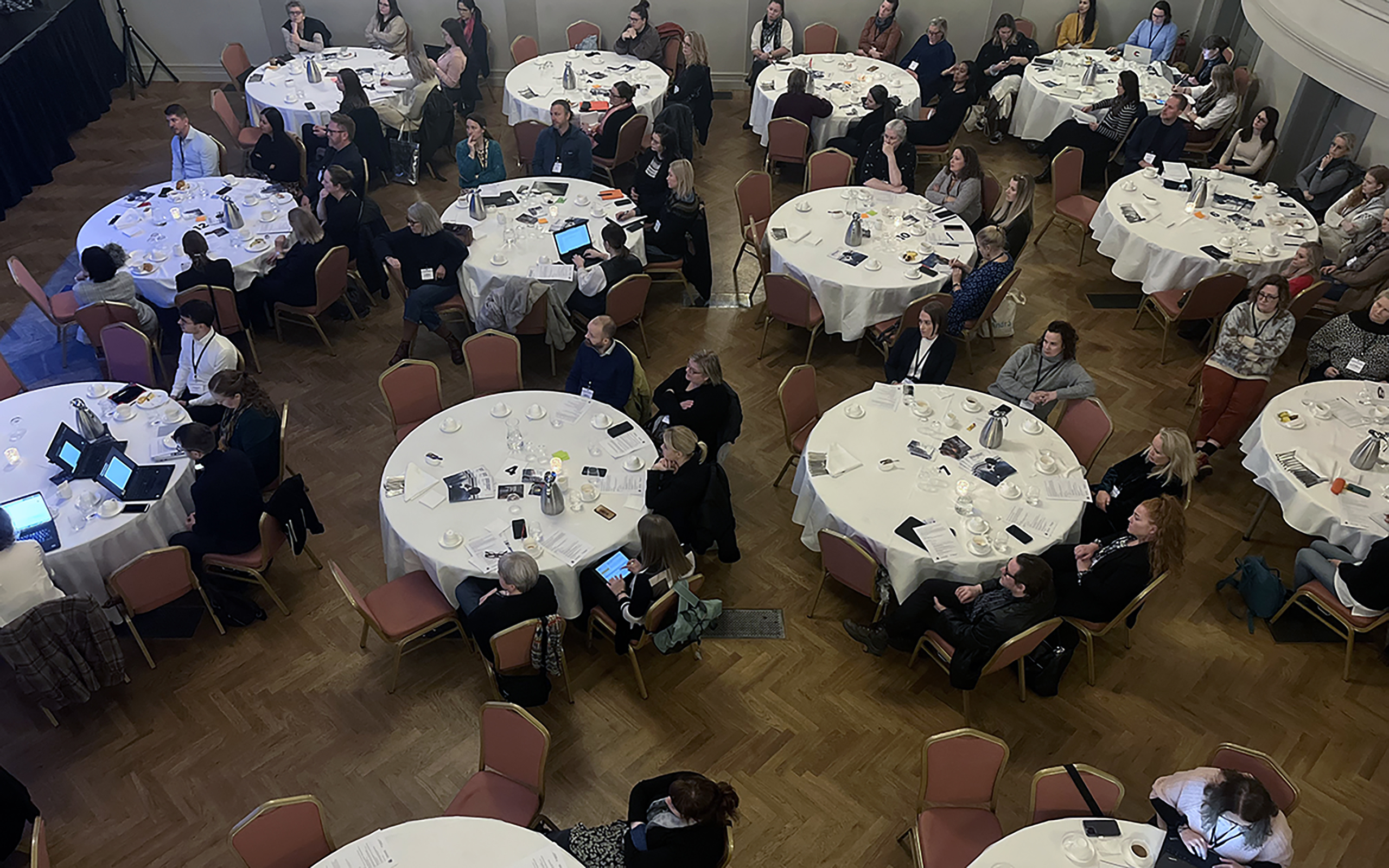
Related news
Immigration & development
8 Apr 2024

